Table of Contents[Hide][Show]
A digital creator produces and shares original content in electronic formats, mainly focusing on online platforms like social media, blogs, and video-sharing sites. They aim to entertain, inform, or educate their audience through various forms of digital media. In this article, we’ll explore what a digital creator is, the differences between digital creators and influencers, and the impact digital creators have on culture and the economy. If you’re new to social media, we recommend starting with our “How to Do Social Media Marketing” article and then returning to this article for more in-depth details.
Key Takeaways
- Digital creators produce original content across various social media formats, focusing on engagement and storytelling rather than promotional goals.
- Unlike influencers, who aim to sway purchasing decisions, digital creators enhance brand visibility and drive cultural trends through their expertise.
- Monetization is key for digital creators, with strategies including sponsored content, selling digital products, and building a personal brand to connect with their audience.
Defining a Digital Creator
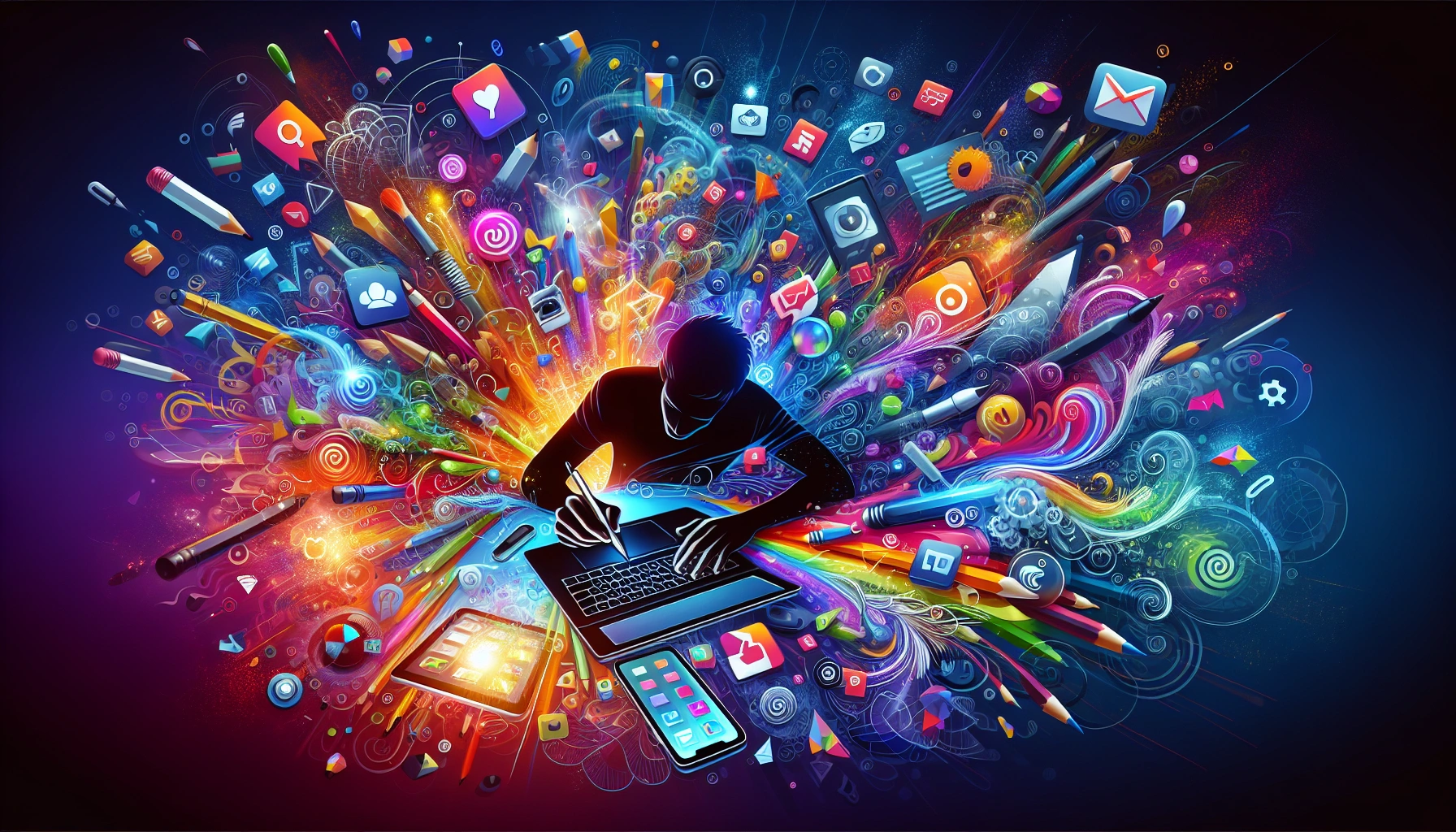
A digital creator makes and shares original content in digital form, including digital creation. Unlike traditional content creators, many digital creators focus on online platforms like images, videos, and text. Their content is to entertain, inform, or educate audiences, so they are essential to the digital world with their YouTube videos, blog posts, or Instagram photos, just like other digital creators.
Digital content creators manage and create content for websites and social media platforms. They create content for all audiences so the digital landscape is richer.
From vloggers to graphic designers, digital creators create content across many platforms. Their creativity and honesty win the audience and set them apart in the digital space.
Types of Digital Creators
Digital creators can be categorized into various types based on their skills, personalities, and the tech stack they use to create content. Here are some common types of digital creators:
- Visual Creators: These creators specialize in producing high-quality visual content, such as graphics, videos, and photographs. They often use design software like Adobe Creative Cloud to create engaging visuals that captivate their audience.
- Content Writers: These creators focus on writing engaging content, such as blog posts, articles, and social media posts. They often use writing tools like Grammarly and Hemingway Editor to refine their writing skills and ensure their content is clear and compelling.
- Video Creators: These creators specialize in producing high-quality video content, such as vlogs, tutorials, and reviews. They often use video editing software like Final Cut Pro and Adobe Premiere Pro to create engaging videos that resonate with their audience.
- Audio Creators: These creators focus on producing high-quality audio content, such as podcasts, music, and voiceovers. They often use audio editing software like Audacity and Adobe Audition to create engaging audio content that keeps listeners returning for more.
- Influencer Creators: These creators specialize in promoting products or services to their large following on social media platforms. They often use influencer marketing platforms like AspireIQ and HYPR to connect with brands and create content that drives engagement and sales.
- Educational Creators: These creators focus on creating educational content, such as online courses, tutorials, and workshops. They often use learning management systems like Udemy and Teachable to create and sell their courses, helping their audience learn new skills and knowledge.
- Gaming Creators: These creators specialize in creating gaming content, such as walkthroughs, reviews, and tutorials. They often use gaming software like OBS Studio and XSplit to record and stream their gameplay, building a community of dedicated fans.
Digital Creators vs. Influencers
While “digital creator” and “influencer” are used interchangeably, they have different roles in the digital world. A digital content creator produces and manages digital content across various platforms, focusing on content creation’s creative and strategic aspects aimed at audience engagement and monetization. Influencers, on the other hand, focus on swaying their audience’s buying behavior. Digital creators focus on all types of content without needing promotional goals. For example, while influencers like Martinus Evans build a following to drive sales, digital creators engage with their audience through expertise and storytelling. Influencer marketing plays a part in this.
Both digital creators and influencers can have large followings, but their reasons are different. Digital creators inform or entertain, and influencers persuade. Digital creators appeal to their expertise or storytelling ability, not their celebrity status. This is key to understanding the many reasons for content creation in the digital space.
The Importance of Digital Creators
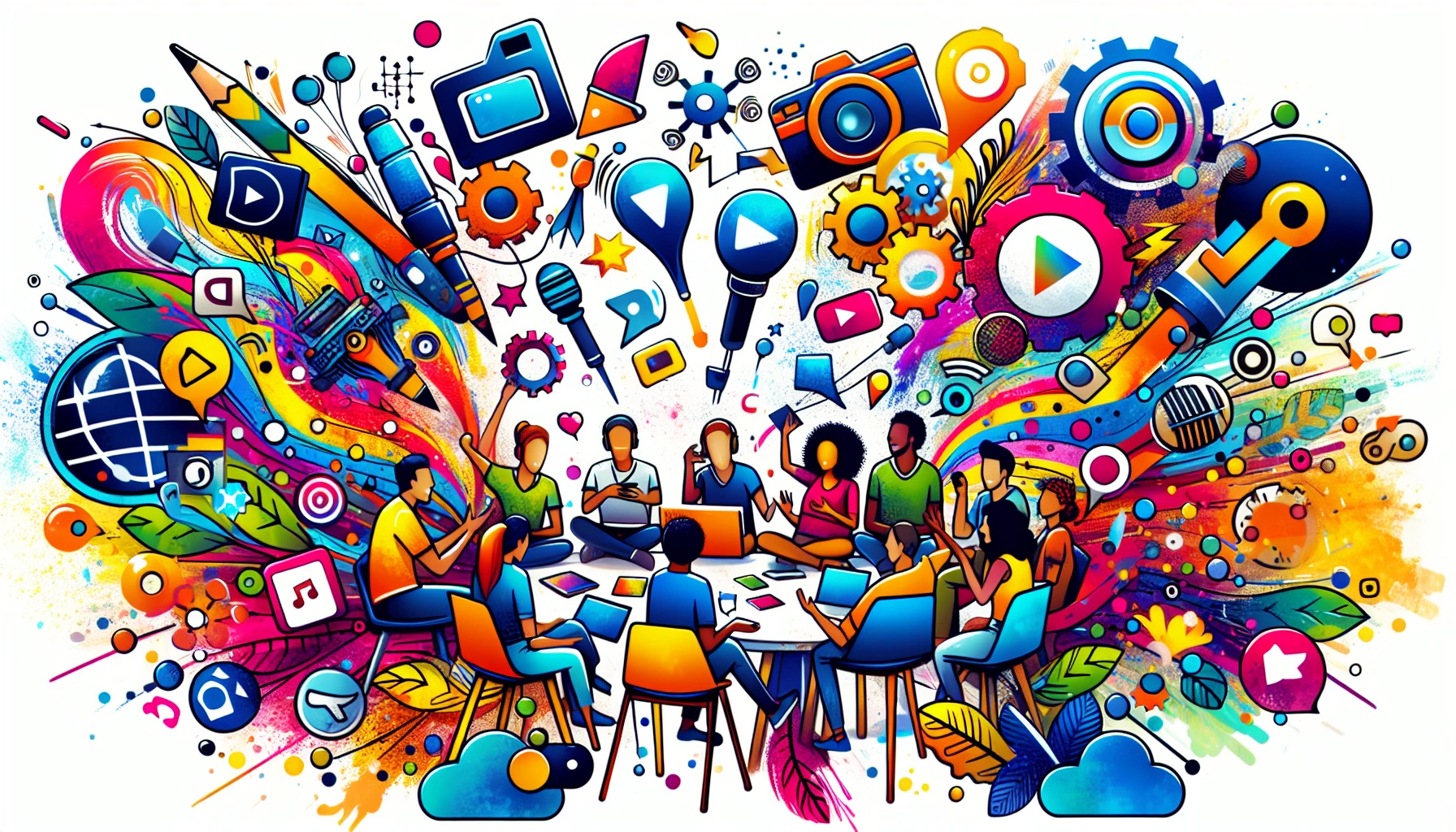
Digital creators help businesses talk to customers and get visibility. In a marketing-mad world, they create content that increases brand perception and drives sales. A good partnership with a digital creator gives brands access to new markets and real connections with their target audience.
A digital content creator plays a crucial role in enhancing brand visibility and driving cultural trends. Digital creators go beyond marketing. They are trendsetters who shape cultural narratives and have economic power. Digital creators drive cultural and digital narratives by setting trends and social behaviors. They can monetize audiences through multiple revenue streams, which is why the creator economy is growing so fast.
Setting Trends and Cultural Influence
Digital creators are the trendsetters, shaping cultural and social narratives. Platforms like Instagram and TikTok are the tools. For example, Instagram’s algorithm loves video, so creators get more visibility. Adam Ragusea’s culinary content is a great example of how creators can stand out and influence.
TikTok, with its own platform, encourages viral trends, and creators can get exposure quickly with relatable content. These platforms allow digital creators to set social trends and build a loyal following and, therefore, brand awareness for themselves and their collaborators.
Economic Impact
The rise of digital creators is all about being able to monetize their audience through multiple revenue streams. They create jobs in content production and marketing and contribute to the economy. The creator economy will keep growing, creating more jobs and markets.
Digital creators’ ability to reach a wider audience and drive social trends is key for brands seeking more market share. By leveraging the influence of digital creators, businesses can tap into new markets and gain more brand visibility. This symbiotic relationship between digital creators and brands is the economic impact of the creator economy.
Types of Content Created by Digital Creators
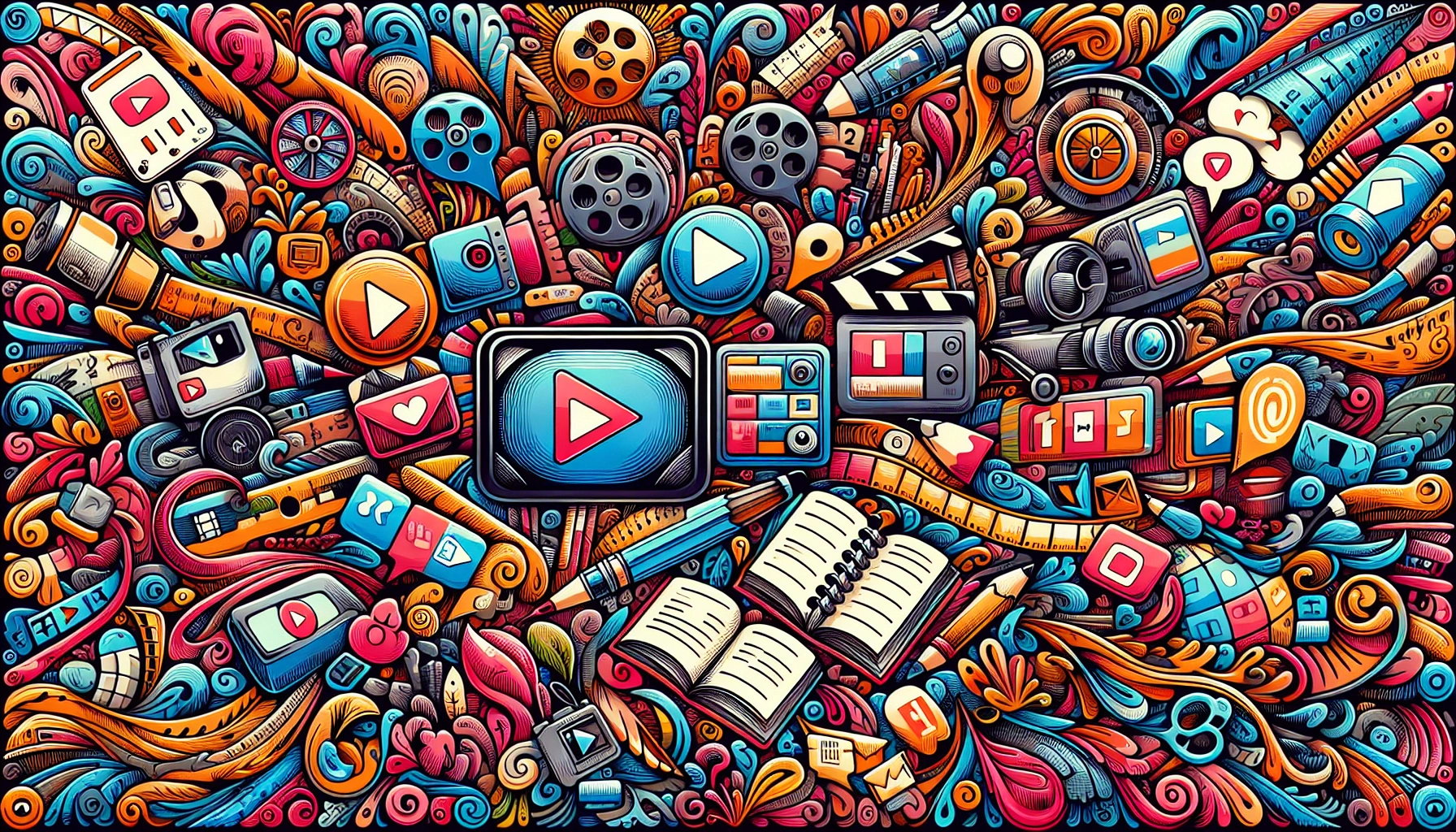
Before, digital creators produced all sorts of content, so the digital landscape is rich and varied. Blogs, social media posts, videos, and podcasts are common types of content for content marketing. Each format requires different skills and approaches so that digital creators can cater to different audience preferences.
Common types of content produced by digital creators:
Blogs
Social media posts
Videos
Podcasts
Each format requires different skills and approaches, allowing digital creators to cater to various audience preferences.
For example, vloggers produce video content about their personal experiences, often about lifestyle, travel, or product reviews. Photographers produce visual content for brands and require skills in both photography and editing. Podcasters produce audio episodes on different topics, often requiring different production and editing levels.
Streamers broadcast live on Twitch or Youtube. Bloggers, blog for business by publishing long-form content across multiple platforms, from tutorials to industry insights. Graphic designers create visual content, such as illustrations and animations, for various media. This is the beauty of digital creators.
How Digital Creators Use Social Media Platforms
Social media platforms are a must-have for digital creators. They utilize these platforms to distribute content and engage with their audience, leveraging social media, email, and online communities to promote their content. Building a community is key to audience engagement as it allows for meaningful conversations and reduces performance pressure. Digital creators often maintain a consistent brand by keeping their usernames the same across social media platforms.
Different platforms have different tools and features for content creation and audience engagement. Let’s explore how digital creators use Facebook, Instagram, and TikTok to increase reach and engagement.
Facebook for Digital Creators
Facebook is a big platform for creators to reach more people. Creators can use live streaming to talk directly to their audience. Using Facebook’s engagement tools, creators can monetize through ads and donations.
Overall, Facebook has everything creators need to grow their audience and try different monetization methods.
Instagram Strategies for Digital Creators
Instagram is a goldmine for digital creators, with features to share digital content, including posts, videos, and Stories. The most used feature by digital creators on Instagram is Stories to connect with their audience in real-time. Videos are another popular feature; short-form videos are key to audience engagement. Videos are powerful on Instagram; 84% of people buy based on video content.
With 30 million digital creators on Instagram, staying on top of trends is key. Staying up-to-date with social media trends, popular songs, and meme marketing strategies can enhance content engagement. Utilizing these social media strategies, digital creators can enhance their brand awareness and expand their presence on Instagram. Many Instagram creators also utilize top Pinterest marketing strategies to repurpose their Instagram posts and expand their reach to a broader audience.
TikTok Techniques for Digital Creators
TikTok is for creators, with tools to maximize audience engagement. It’s a platform that breeds virality, where creators can go viral with relatable content.
TikTok’s video editing and trending content helps creators build a loyal audience and grow.
Growing Your Audience and Community
Growing your audience and community is crucial to becoming a successful digital creator. Here are some social media marketing tips for beginners to help you grow your audience and community:
Building a Loyal Community
Building a loyal community requires creating engaging content, interacting with your audience, and providing value to your followers. Here are some tips to help you build a loyal community:
- Create Engaging Content: Focus on creating content that resonates with your audience and encourages them to engage with you. Whether it’s through thought-provoking blog posts, captivating videos, or interactive social media posts, make sure your content is valuable and relevant to your audience.
- Interact with Your Audience: Engage with your audience by responding to comments, answering questions, and participating in discussions on social media platforms. This interaction helps build a sense of community and makes your audience feel valued and heard.
- Provide Value: Share tips, tutorials, and exclusive content to your followers. This could be in the form of how-to guides, behind-the-scenes looks, or special offers that are only available to your loyal followers.
- Host Giveaways and Contests: Organize giveaways and contests to encourage engagement and reward your loyal followers. These activities can help increase your reach and attract new followers while keeping your existing audience excited and engaged.
Leveraging Collaborations
Collaborating with other digital creators can help you grow your audience and community. Here are some tips to help you leverage collaborations:
- Find Collaborators: Look for digital creators with a similar niche or target audience. Collaborating with creators who share your interests and values can help you reach a wider audience and create more engaging content.
- Reach Out to Collaborators: Approach potential collaborators with a clear and compelling proposal. Explain how the collaboration will benefit both parties and outline your ideas for the project.
- Create Collaborative Content: Work together to create content that showcases your collaboration and provides value to your audience. This could be in the form of joint videos, guest blog posts, or co-hosted live events.
- Promote Collaborative Content: Share your collaborative content on social media platforms and encourage your collaborators to do the same. This cross-promotion can help you reach new audiences and build a stronger community.
Monetization Methods for Digital Creators
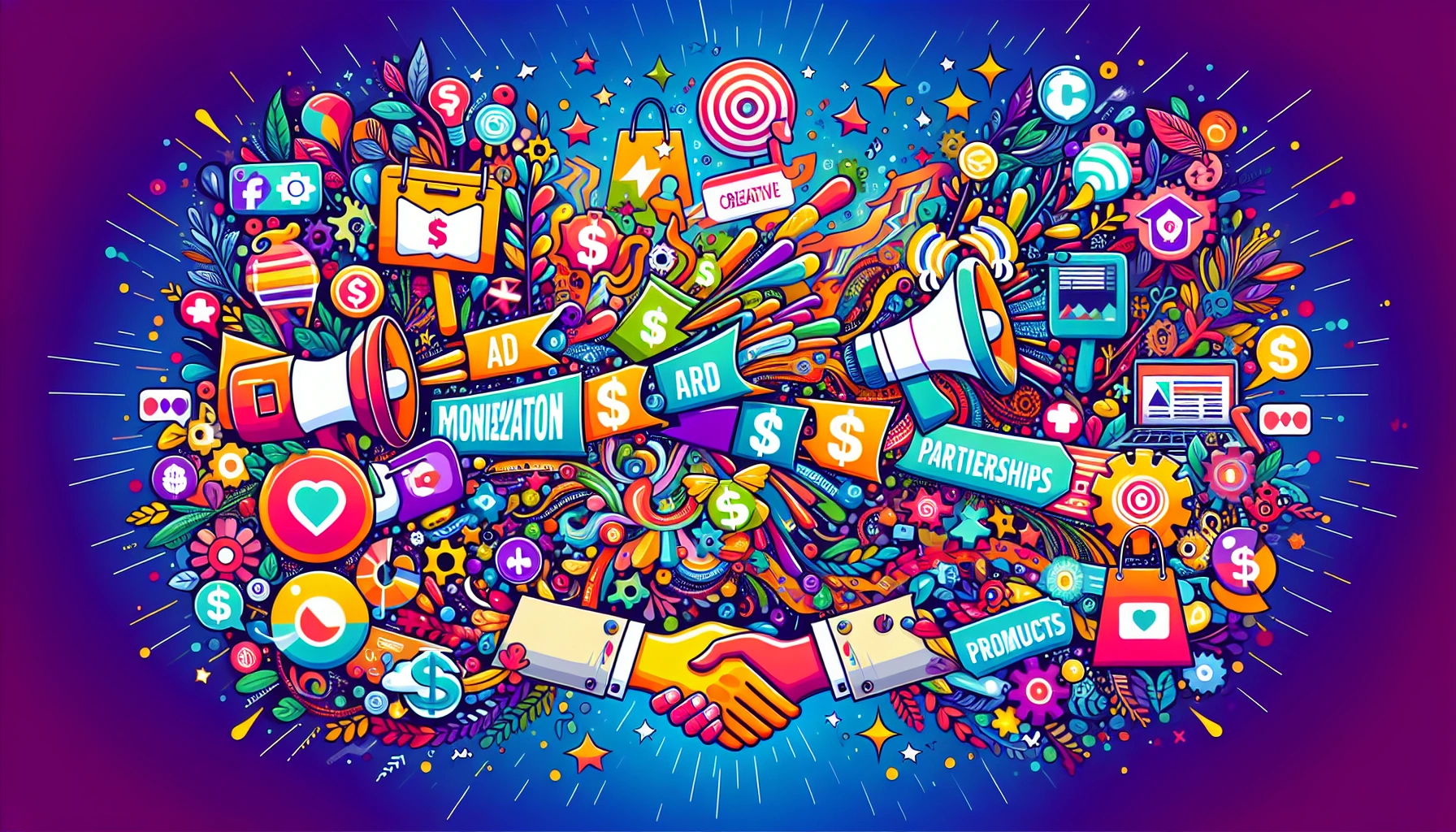
For most digital creators, monetization is everything, with many ways to make money from your content. Ads, sponsored content, and selling digital products are the most common. Specialized strategies like Shopify, online courses, and brand partnerships will increase your earnings.
Communities help digital creators make money by allowing them to find their niche and cash in on audience engagement. Try out different monetization methods like sponsored content, brand partnerships, and selling digital products. Online courses will show you how many ways you can make money.
Sponsored Content and Brand Partnerships
Sponsored content allows creators to work with brands to create content in exchange for pay. These can be joint live sessions, guest posts, or co-hosted events. The benefits of working with other creators include reach extension, fresh perspectives, varied content, and learning opportunities.
By working with brand partnerships, creators can boost brand awareness and generate revenue. These partnerships produce high-quality content that resonates with the audience and the creator’s personal brand.
Selling Digital Products and Online Courses
Selling digital products and online courses is a money-maker for digital creators. Creators can monetize their expertise by creating online courses for specific interests and skills. The flexibility is one of the reasons many prefer online courses over traditional education. Types of training offered in online courses are business training, soft skills, math, and guitar lessons.
Digital creators can also sell e-books and merchandise and make money through the digital products they create. Offering exclusive content through subscription models can be a steady income for digital creators.
Steps to Becoming a Successful Digital Creator
To be a digital creator, you need to follow a few steps. Anyone can become a digital creator by finding a niche that aligns with your passion and market demand. Choosing the right content to create is key as it determines your focus and strategy. Digital creators should practice hands-on and create content to hone their copywriting, video editing, and organization skills.
To reach a wider audience, creators should try out different platforms and mediums. Continuous improvement is key to success, which requires regular practice and the setting of goals. Keeping up with the social media landscape, knowing the trends, and overcoming the challenges is also essential for being a successful digital creator.
Finding Your Niche
Focusing on a niche helps you clarify your content and build a loyal audience. A clear niche helps with the course and community launches. Digital creators should use their expertise and market knowledge to define their niche.
Starting broad can help you narrow down over time. Once you’ve chosen a niche, look at what others are creating in that space.
Building Your Personal Brand
Authenticity matters to an audience and a creator. Personal branding is key for digital creators to be seen and heard. A good personal brand = more loyal and engaged audiences.
Content Strategy and SEO
A content strategy and SEO are key. Setting realistic goals, like one video or weekly post, helps with consistency and engagement. AI post generators can help with inspiration blocks and content flow. Continuous learning keeps digital creators up to date with the latest tech.
A content calendar is key to consistency and engagement. Digital marketing and SEO skills get you more visibility and reach a wider audience.
Repurpose a blog post into a podcast, infographic, or social media series to get more out of it. Promote a content ecosystem and internal linking to increase audience engagement.
SEO and Analytics
Understanding SEO and analytics is crucial to becoming a successful digital creator. Here are some tips to help you understand SEO and analytics:
Understanding SEO and Analytics
SEO (Search Engine Optimization) and analytics are crucial to understanding how your content performs on search engines and social media platforms. Here are some tips to help you understand SEO and analytics:
- Use SEO Tools: Utilize SEO tools like Google Analytics and SEMrush to track your website’s traffic and optimize your content for search engines. These tools can help you identify keywords, analyze your competitors, and understand your audience’s behavior.
- Track Your Analytics: Monitor your analytics on social media platforms like Facebook and Instagram to understand how your content performs. Monitor metrics like engagement rates, reach, and follower growth to gauge your success.
- Optimize Your Content: Use relevant keywords and hashtags to optimize your content for search engines and social media platforms. This can help increase your visibility and attract more organic traffic to your content.
- Monitor Your Performance: Regularly review your performance on search engines and social media platforms to understand what’s working and what’s not. Use this information to refine your content strategy and make data-driven decisions.
By understanding and leveraging SEO and analytics, digital creators can improve their content’s visibility, reach a wider audience, and ultimately achieve greater success in their digital creator journey.
Case Study: A Successful Digital Creator Journey
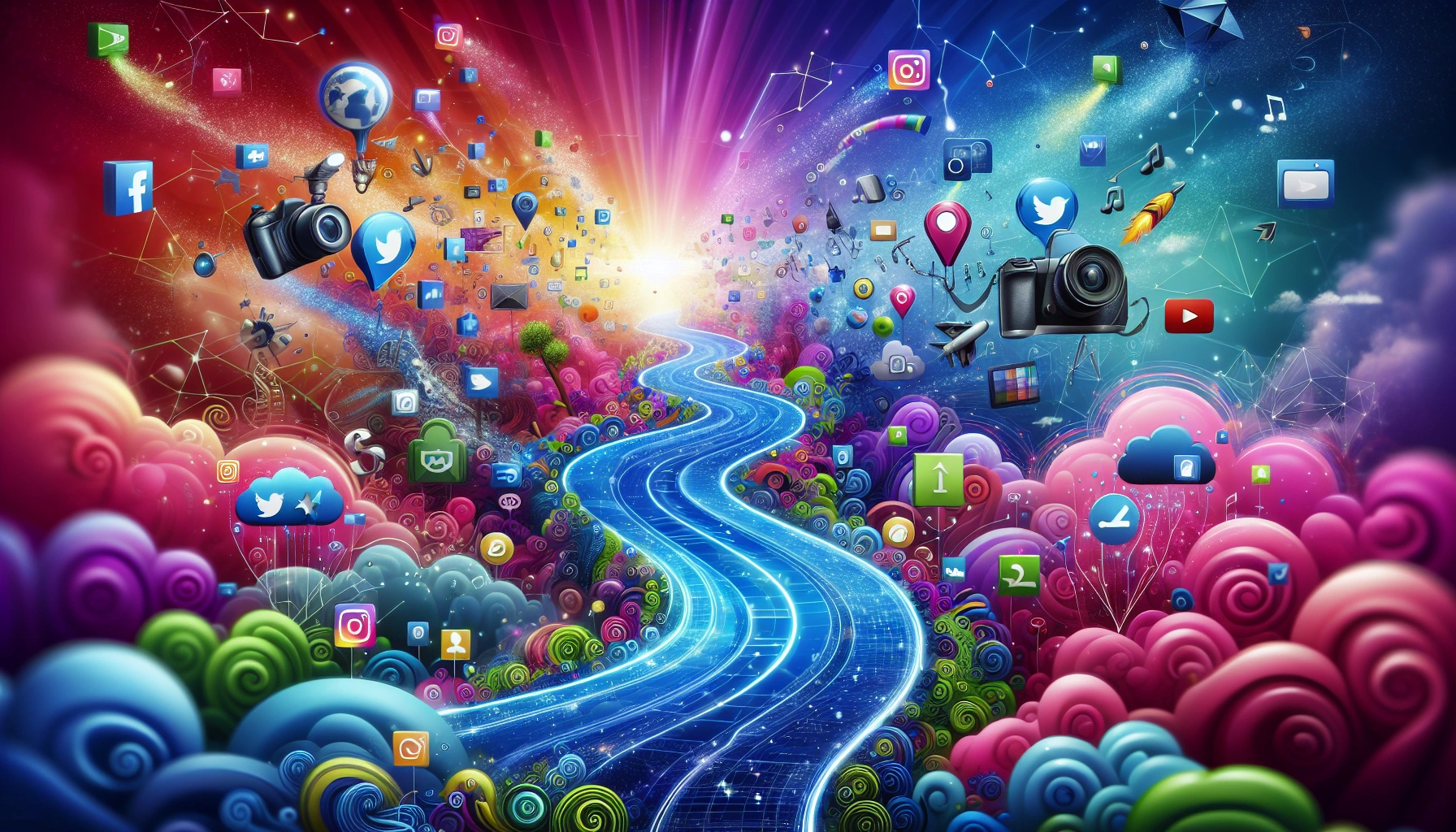
Adam Ragusea has two million+ fans. YouTube subscribers and is a master at managing relationships with followers, sponsors, and brands. His production is top-notch, and he explains culinary concepts clearly, so he has a loyal audience. He’s written a cookbook and hosted a Netflix cooking series.
Adam’s story shows the importance of being authentic, consistent, and continuous learning. By focusing on high-quality content and engaging with his audience, Adam has built a successful digital creator career. He’s an excellent example for other digital creators to combine passion and expertise in the digital world.
Summary
In the current era of online media, digital creators are leading the charge in transforming how trends are set, and culture is influenced, all while contributing to economic advancement. These creators craft compelling content for diverse platforms that not only engage their audiences but also amplify brand recognition and pave new paths for financial gain. The path to success as a digital creator is marked by identifying one’s unique market segment, cultivating a distinctive personal brand, and devising an effective strategy for content creation.
To sum up, those who dedicate themselves to mastering their skills in this space have significant opportunities awaiting them. Aspiring digital creators can find rewarding careers within the realms of education, entertainment, or motivation through developing engaging content. It’s essential to nurture your inventive spirit and maintain genuineness while striving for continuous improvement—consider the expansive digital world as your vast canvas waiting for creativity’s touch.
Frequently Asked Questions
What is a digital creator?
A digital creator is someone who makes and shares unique content online, often aiming to engage and entertain their audience.
How do digital creators differ from influencers?
Digital creators prioritize producing high-quality content, while influencers mainly focus on influencing their audience’s buying decisions.
What types of content do digital creators produce?
Digital creators produce diverse content, such as blogs, videos, podcasts, and social media posts.
How can digital creators monetize their content?
Digital creators have various avenues to capitalize on their content, including utilizing advertisements, engaging in sponsored posts, marketing digital products, conducting online courses, and establishing partnerships with brands.
What are the key steps to becoming a successful digital creator?
To become a successful digital creator, focus on finding your niche and building a strong personal brand. Develop a solid content strategy and keep improving your skills along the way.
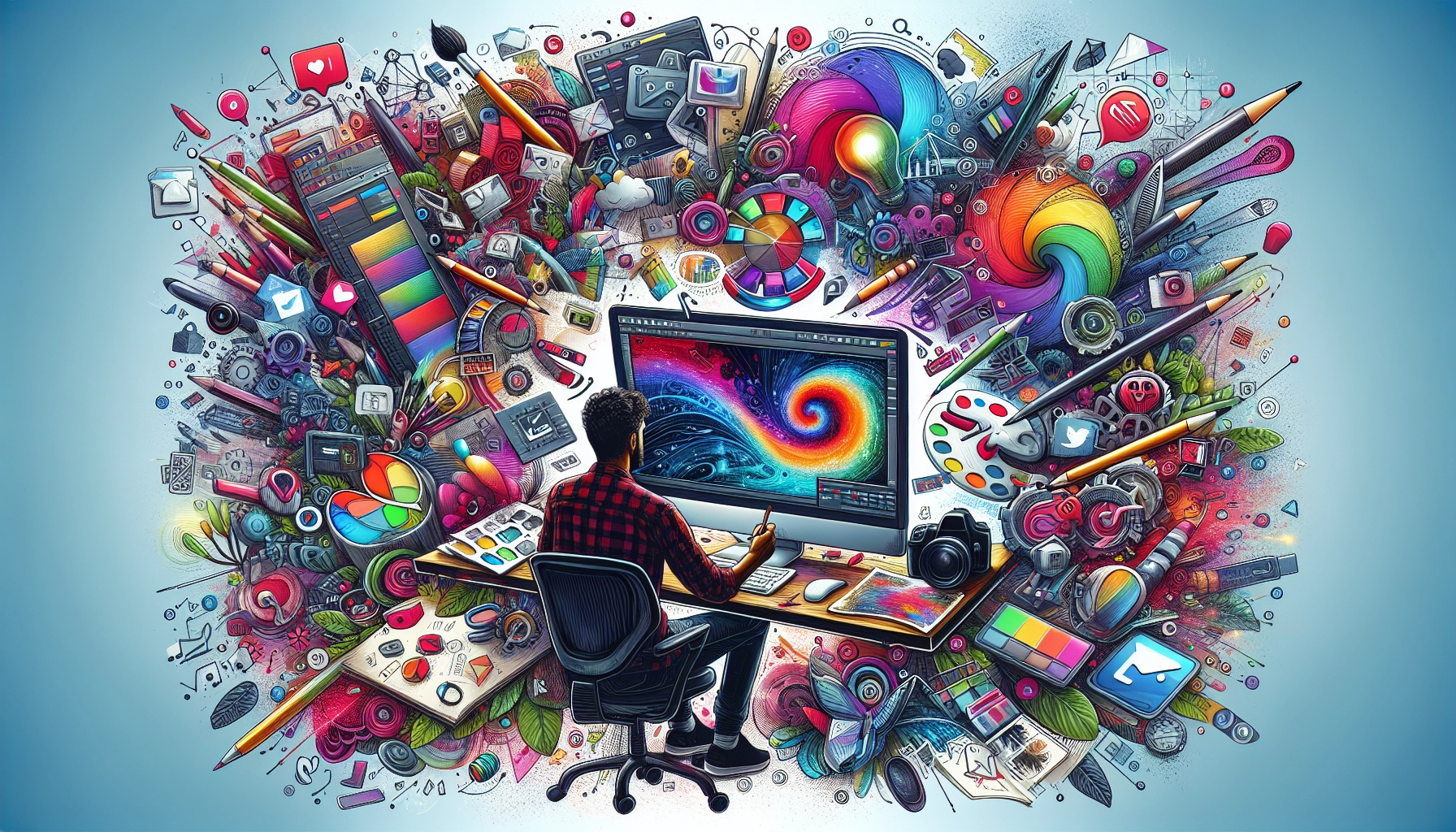
 How to Setup and Optimize Pinterest Business Account Profile Page
How to Setup and Optimize Pinterest Business Account Profile Page